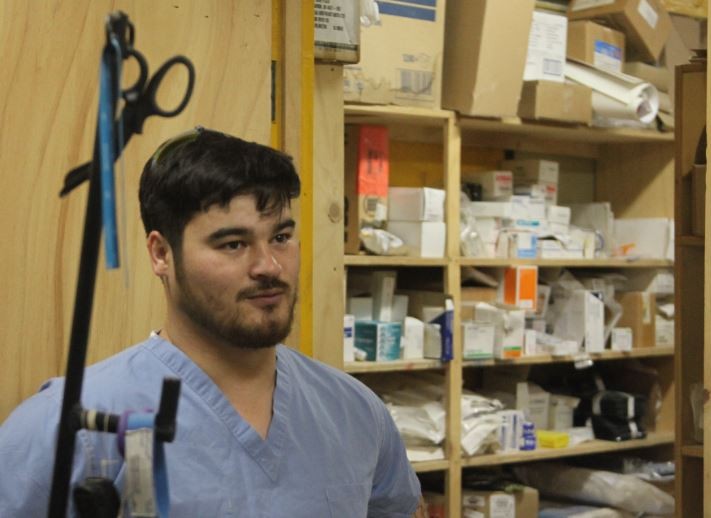Veteran and WSU Pharmacy Student Wants to Help Rural Vets
Thursday, November 10, 2022

Sauseda was used to providing life-saving medical care as a U.S. Army Special Forces Medical Sergeant.
When it came to his own health, however, a pharmacist was his salvation.
Sauseda had experienced traumatic brain injury during multiple combat tours in Afghanistan and Iraq, and at one point was taking 18 medications to treat his symptoms.
A clinical pharmacist helped bring that number down to “a very manageable three” medications, Sauseda said, freeing him to pursue his dreams beyond the military.
He set aside his initial plan to pursue a medical career after he retired from the military and instead enrolled in the Washington State University College of Pharmacy and Pharmaceutical Sciences.
Now a second-year student in the doctor of pharmacy program, Sauseda is intent on providing care to other veterans for his second career.
And not just any veterans – he wants to work with vets who live in rural areas.
The U.S. Department of Veterans Affairs says there are 4.7 million veterans living in rural or “highly rural” areas in the United States. More than half have at least one service-connected condition and many are older, with medically complex conditions.
Michael Sauseda, right, with fellow Rural Health Initiative students at the Crimson Gala, the annual fundraising event for the college.
To better serve this population, Sauseda is also one of the first Rural Health Initiative students at the College of Pharmacy and Pharmaceutical Sciences. Started in the fall of 2021, the Rural Health Initiative is an ambitious 10-year plan to create opportunities for student pharmacists and post-graduate pharmacists to specialize in delivery of rural health care.
Sauseda hopes to work with the Veterans Administration medical system to find ways to care for veterans in rural areas, he said.
“Chronic conditions have been shown to have marked improvement with chronic care teams, but those teams don’t work in smaller population centers,” he said. “I’d like to find a way to get out there and provide that care. Being part of a team that helps facilitate that would be amazing.”
That might be through telehealth or by taking care to veterans via mobile clinics, or a combination of the two, he added.
Sauseda, now 40, said of the WSU College of Pharmacy and Pharmaceutical Sciences, “I love the program. Everyone here has been really receptive, oftentimes bending over backward to ensure not only myself but other veterans feel welcomed and supported.”
